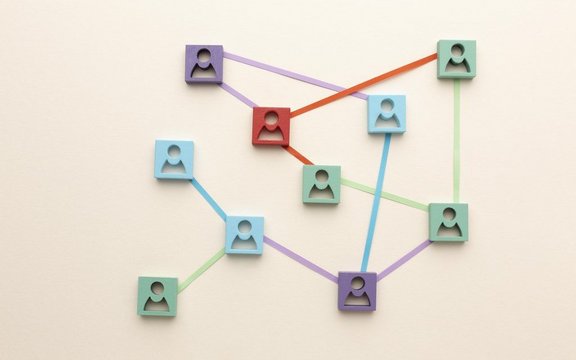
Working Groups
The staff of the OeAD Center for Citizen Science contribute their expertise to various national and international working groups (WGs) and thus contribute to the further development and bundling of citizen science know-how. The Center coordinates the working group “Citizen Science at/with schools” and is an active member of other groups.
The working groups
The working group
The working group “Citizen Science at/with schools” led by the OeAD Center for Citizen Science is part of the Citizen Science Network Austria. Its inaugural meeting took place during the 5th Austrian Citizen Science Conference (June 26-28, 2019) in Obergurgl, Tyrol. The members are made up of researchers and teachers from various research and educational institutions. There is also an international exchange with the Citizen Science in Schools working group of the German platform “Bürger schaffen Wissen”.
Citizen Science brochure
The members of the working group developed the handout "Citizen Science - Research with Schools. Basics, recommendations & practical tips for joint projects", which was published by the OeAD in September 2021. Important topics addressed in the brochure include the added value of Citizen Science and a wealth of information on project planning and implementation. The brochure is aimed at teachers and researchers who are interested in collaborating on citizen science projects.
The web version can be found HERE (pdf) or on the open science platform Zenodo.
Further training for teachers
In November 2024, the working group held a half-day online training course for teachers for the first time. Interested parties from all types of school were able to find out what needs to be considered when implementing projects in a school context and engage in a direct exchange with experienced teachers and project managers. To the follow-up report.
The training course will be offered again in 2025. Interested teachers can register via the Vienna University of Teacher Education between August 15 and September 15, 2025.
Contact
If you are interested in joining the working group, please contact elisabeth.schauermann@oead.at.
1. Mission and objectives of the working group
The aim of the working group is to intensify the cooperation in the German-speaking area, to use synergies, to exchange best practices and to establish short ways of (informal) exchange. The goals are:
- the expansion of personal contacts and the establishment of closer cooperations
- the identification and setting of common focal points
- the facilitation of trilateral project consortia and the initiation of concrete projects
- the further development of citizen science in terms of content and quality in German-speaking countries
- a strengthened and more uniform appearance of citizen science in the international arena
2. Priorities in 2023
The D-A-CH WG is planning the following joint activities for 2023:
- Citizen Science conferences: There is potential for synergy in the national conferences held in both Germany, Austria and Switzerland, which can be exploited to an even greater extent. In 2023, members of the D-A-CH AG are represented in the respective other conference committees.
- At the ÖCSK 2023, the D-A-CH WG was actively involved with a joint workshop on "Mentoring under a DACH". In this way, the D-A-CH WG is following up on the jointly explored topic of a "mentoring program" and is examining the potential and feasibility of a cross-national offering for the citizen science community.
- Training offers: In the area of "Training", the D-A-CH WG 2023 will address the topics "Open Data in Citizen Science" and "Digital Ethics". Corresponding digital events are planned and carried out jointly. As a kick-off of the Open Data series, the Webinar "Open Data in Citizen Science Projects" (in German) - the recording is online - took place. In addition, the D-A-CH WG plans to process the findings in the form of a guide or similar.
3. Members
The members of the D-A-CH WG work at universities and research institutions or are otherwise active as actors in the context of citizen science. They come from the following institutions, among others:
- Österreich forscht / Universität für Bodenkultur Wien (BOKU)
- OeAD – Zentrum für Citizen Science
- Schweiz forscht / Science et Cité
- Partizipative Wissenschaftsakademie (Universität Zürich/ ETH Zürich)
- Bürger schaffen Wissen (Berlin) (Wissenschaft im Dialog & Museum für Naturkunde Berlin)
- WWU Münster
- Friedrich-Schiller Universität Jena
- Leibniz-Institut für Deutsche Sprache (Mannheim)
- open science for open societies - os4os gUG
4. Contact
Austria:
- Daniel Dörler: daniel.doerler[at]boku.ac.at
- Florian Heigl: florian.heigl[at]boku.ac.at
Switzerland:
- Tiina Stämpfli: tiina.staempfli[at]science-et-cite.ch
- Olivia Höhener: olivia.hoehener[at]uzh.ch
Germany:
- Wiebke Brink: info[at]buergerschaffenwissen.de
This international working group is part of the European umbrella organisation ECSA and has the following objectives:
- To support, research and evaluate learning and education in Citizen Science
- To conduct research on learning in Citizen Science
- To develop educational programmes in the field of Citizen Science
- To support schools in the use of Citizen Science in the classroom
- To develop instruments for evaluating learning outcomes
The meetings take place approximately once a quarter and interested parties can register on a form to be added to the email distribution list.
The Network of Citizen Science Trainers and Educators was launched in 2022 to build the European Citizen Science Academy (ECS Academy). The network was designed with the aim of mapping and considering the already existing field of Citizen Science education and training in order to develop the ECS Academy to best respond to the needs of current Citizen Science trainers and educators as a European institution.
The working group is led by the Learning Planet Institute (Paris, France) and is part of the European Citizen Science (ECS) project.
